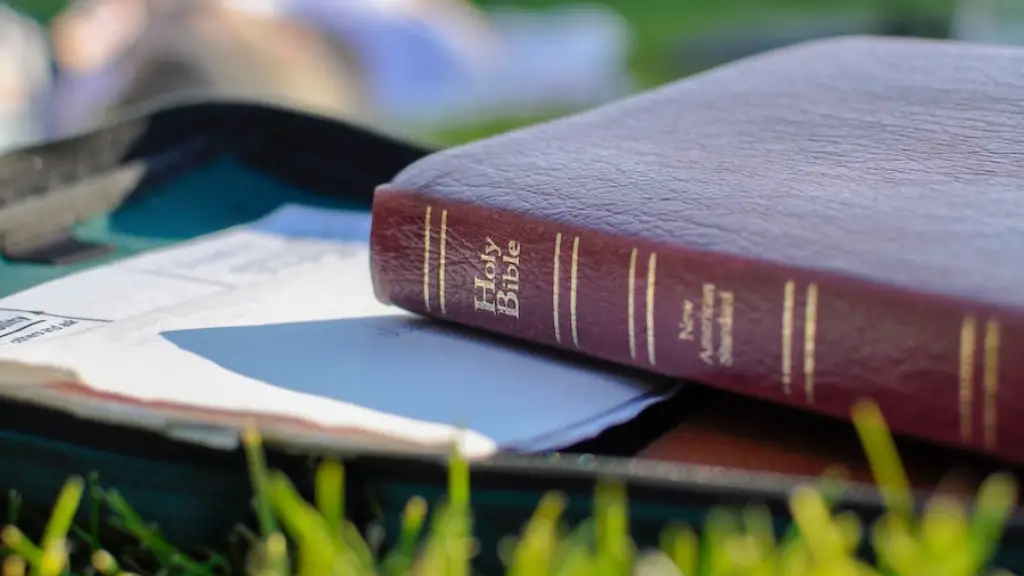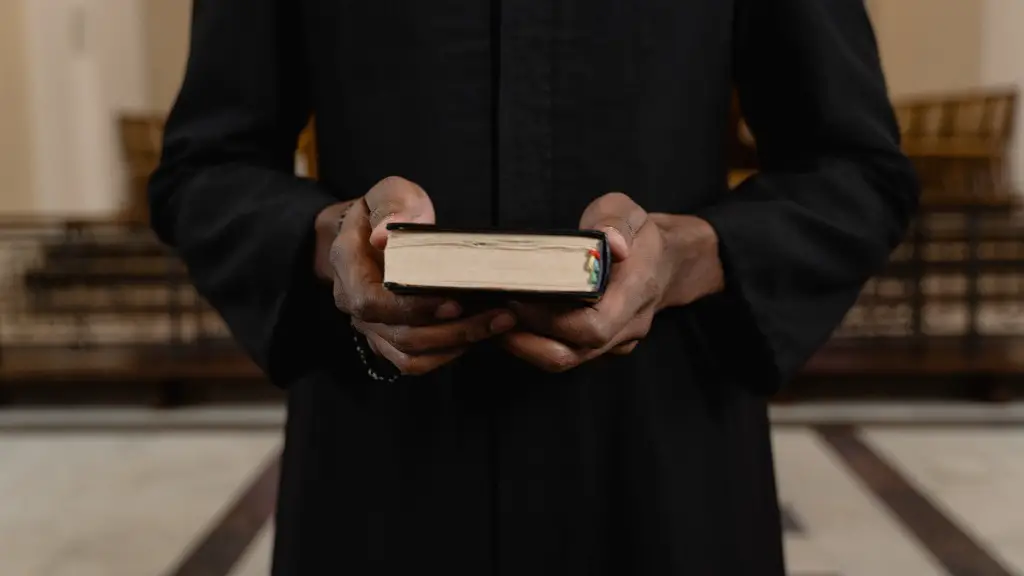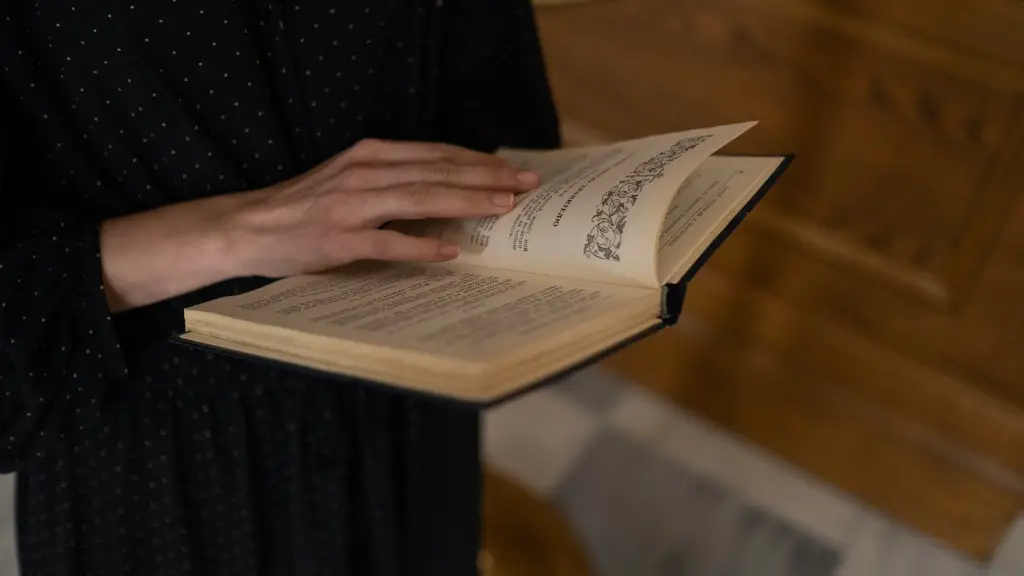What does the Bible say about dragons? According to the Bible, there is no definitively clear answer to this question, as dragons are never mentioned directly in any Biblical literature. However, there is an assumption that dragons existed or at least were known of in the time of the Bible, as they are referenced throughout the legends and mythology of many other ancient cultures.
The Bible makes numerous references to creatures that could be interpreted as dragons. In Job chapter 41, God emphatically questions Job with powerful, yet slightly infamous, words: “Canst thou draw out leviathan with an hook? Or his tongue with a cord which thou lettest down?” Some interpret this passage as a battle between man and a sea monster that resembles a dragon, while others interpret the passage as referring to a cruel ruler. Similarly, in Isaiah chapter 27, verses 1 and 3, the prophet speaks of a “leviathan” who, some suggest, is either a sea monster or some type of tyrant.
The most significant dragon reference in the Bible is found in Revelations Chapter 12. This passage speaks of a great battle between a dragon and an angel. The dragon is described as ‘that old serpent, called the Devil, and Satan’ and is identified as a powerful enemy of God. The angelic warrior defeats the dragon, who is then cast out of heaven and cast down to earth. This passage demonstrates the place of dragons in society – some interpretation of the Bible suggest that dragons represent oppression and chaos, which must be overcome and brought under submission to the will of God.
In general, dragons are often characterized as chaotic forces of destruction in Biblical literature. Unlike depictions in other ancient texts, Biblical dragons are not characterized as noble or heroic. Rather, they are seen as dangerous and unstable creatures that are capable of immense carnage.
Of course, interpretations of the Bible and its references to dragons depend upon the reader’s own beliefs and opinions. For many, the mention of dragons in the Bible implies the existence of dragons in some form. Others read the references to them as more symbolic and metaphorical. Ultimately, the presence of dragons in the Bible remains ambiguous and open to interpretation.
How Dragons Are Depicted In Other Ancient Texts
In contrast to the general absence of dragons within the Bible, dragons are a common motif in ancient mythology from other cultures. The Egyptians, Babylonians, Greeks, Romans and Chinese all included stories of dragons in their folklore. In these ancient texts, dragons are depicted as powerful creatures with an array of magical and terrifying powers. Some dragons are powerful gods, while others are corrupt and evil beasts who must be defeated by heroes.
In these ancient texts, dragons symbolize strength and courage in the face of danger. Dragons also symbolize chaos and destruction, which can only be tamed and subdued by great strength and courage. Thus, dragons represent a match between good and evil, between chaos and order, and between strength and power.
In some cultures, dragons are also symbols of wisdom and knowledge. This is often represented by a dragon guarding a mysterious cave or mountain, which can only be opened by those strong enough and wise enough to understand the secret of the dragon.
Modern Day Depictions Of Dragon’s
In modern times, dragon mythology has become entwined in popular culture. Dragons are depicted in a variety of ways in books, television shows, and video games. In many of these media, dragons are shown as powerful, noble creatures that are not necessarily evil. This is a stark contrast to the depiction of dragons in the Bible, where they are almost always portrayed as a force of evil that must be fought and defeated.
Contemporary media often portrays dragons as creatures with powerful magical abilities, or as living beings with deep personal stories. For example, Game of Thrones featured several powerful dragons who were integral to the story. They were not portrayed as chaotic or evil creatures, but instead as majestic and noble beasts that were capable of immense destruction, but could also be trusted allies.
In recent years, dragons have even become popular figures of popular culture, appearing in fantasy novels, video games, toys, and even movies. Clearly, dragons have come a long way since the days of Biblical antiquity – they no longer represent chaos or evil, but instead have become powerful symbols of strength and courage.
How Are Dragons Represented In Other Religions
Although dragons are generally absent from depictions in the Bible, they are a prominent part of many other religions and world cultures. In Chinese and Hindu religions, dragons are often the protectors of spiritual power and wisdom. In Indian culture, dragons often represent fertility, prosperity and protection. In Celtic lore, dragons are typically seen as wise creatures who bring rain and other gifts to the land.
Dragons are also seen as powerful figures of protection in Judaism and Islam. In the Jewish Talmud, dragons are depicted as monsters of chaos brought to life by God in punishment of wicked people. In a similar way, in the Qur’an, dragons are seen as a reminder of the power of God, and a warning against the practice of sin and wickedness.
In conclusion, dragons can be interpreted in various ways by different religions and cultures. While the Bible does not explicitly mention dragons or speak of their significance, dragons have become important figures in many other religions and world cultures. Dragons are depicted as powerful creatures, both with destructive capabilities, but also capable of great wisdom and courage. Dragons have become an integral part of modern fantasy literature, television, and film culture, and will likely remain an important part of the cultural landscape for many years to come.
Comparison Of Dragon Representations In Different Religions
A comparison of dragon representations in different religion reveals both similarities and distinct differences. Across all religions, dragons are largely seen as powerful and dangerous beings, with immense powers and abilities. Ancient cultures often saw dragons as symbols of chaos and destruction, while in more modern depictions, dragons are often portrayed as wise and brave guardians of the land.
In some religions, dragons are seen as protectors of spiritual insight or objects of knowledge and wisdom. In Christianity, dragons are usually interpreted as forces of evil and chaos, although some modern interpretations have shifted away from this and have begun to see dragons as symbols of strength and courage, similar to those found in the interpretations of other cultures.
In Buddhism, dragons are often seen as protectors of Buddhist temples and holy places, as well as sources of fortune and good luck. In Hinduism, dragons are seen as protectors of divine power, as well as bringers of good fortune and rain.
In general, dragons can be interpreted in a variety of ways, depending on the particular religion and culture. They can be seen as sources of divine power, wise guardians, or dangerous and chaotic forces of destruction. The various interpretations of dragons across cultures and religions reveal that dragons can take on a wide range of meanings and can be interpreted in a variety of ways.
What Is The Symbolism Of Dragons In Religions
Dragons have a wide range of symbolism and interpretations in different religions. In Christianity, dragons are usually interpreted as symbols of evil, chaos and darkness. This is particularly true in the Book of Revelations, when a dragon is described as Satan himself. However, some modern interpretations of dragons view them as symbols of strength and courage, similar to interpretations found in other religions.
In Buddhism and Hinduism, dragons often represent fertility, fruition, abundance, and protection. They are seen as protectors of Buddhist temples and holy places, as well as sources of fortune and good luck. In Indian culture, dragons are seen as protectors of divine power, as well as bringers of good fortune and rain.
In Chinese and other East Asian cultures, dragons often represent power, wisdom and strength. They are seen as powerful gods and powerful symbols of the connection between heaven and earth. Similarly, in Celtic lore, dragons are typically seen as wise creatures who bring rain and other gifts to the land.
In other cultures, dragons can also be seen as symbols of transformation and change. They represent the ultimate power of transformation, and represent the many changes that can occur in life. As such, they are seen as potential allies or enemies, depending on the circumstances.
What Are The Moral Implications Of Dragons In Different Religions
Dragons often have moral implications depending on the religion in question. In Christianity, dragons are generally seen as forces of evil and chaos, although a more positive interpretation is gaining acceptance in more modern readings. In Buddhism and Hinduism, dragons are often seen as protectors of divine power, as well as bringers of good fortune and rain.
In Chinese and other East Asian cultures, dragons are powerful symbols of wisdom, strength, and perseverance. They are seen as symbols of power, and they often represent courage in the face of danger. This is seen in classical Chinese texts, where dragons are often shown as both allies and enemies of humans, depending on the circumstances.
In Celtic lore, dragons are typically seen as wise creatures who bring rain and other gifts to the land. This is often interpreted as a metaphor for the ability of powerful beings to bring about positive change and harmony. Similarly, in ancient Greek mythology, dragons are often seen as powerful yet wise creatures.
Overall, dragons can symbolize a variety of values and morals, depending on the religion in question. In general, they are often seen as potent symbols of strength and courage, and represent positive elements such as wisdom, power, and the ability to bring about positive change. Dragons can also represent chaos and destruction, but this depends on the particular religion in question.





